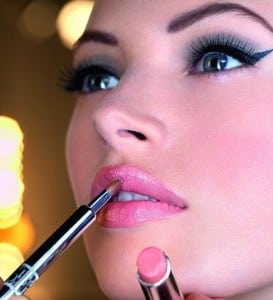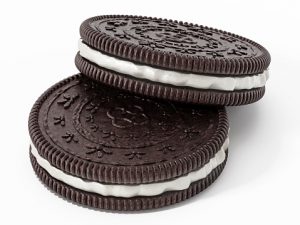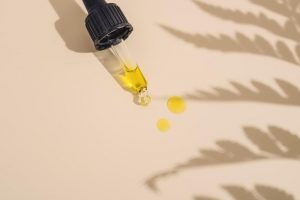By Ahmed Hamid
In the world of beauty, more is always merrier. As the market grows steadily, with superior technology and  consumer behavior insights, established skin care brands are creating trends comparable to Haute couture while fighting to maintain their market share and loyal customer base in the face of stiff competition from newer brands specialized in advanced solutions for beauty.
consumer behavior insights, established skin care brands are creating trends comparable to Haute couture while fighting to maintain their market share and loyal customer base in the face of stiff competition from newer brands specialized in advanced solutions for beauty.
Perhaps the ‘moonshot’ moment for skincare by 2025 will be “personalised skincare” (for customers who can afford), as we learn more about our skin’s real needs thereby influencing our purchase & lifestyle decisions. It is not a distant dream when one could ask for dermo-cosmetics & personal care products specific to one’s skin-makeup (my DC & PC code). Genomics have proven that it’s all in the genes really! Olipro’s biochips are indispensible in product testing for non-porcine ingredients, while Sephora‘s initiative ‘Skincare IQ’ for customers, is a simple example to match the product with the skin type.
Skincare is still the strongest category in the global beauty market and remains the biggest contributor to absolute growth, as the market research company Euromonitor reports. With big marketing budget & promotion campaigns the skin care brands have done well over the decades. With surge in newer and cheaper (synthetic) ingredients, there are concerns about safety since some of these ingredients cause allergies. Moreover, some brands use questionable ingredients from human or animal source such as collagen, placenta extract, amniotic fluid, gelatin & glycerin to name a few.
As a result, in recent years there is growing awareness and demand for natural, vegan, organic, safe, paraben free, animal cruelty free, and halal certified skincare and cosmetics. The Halal industry has evolved from merely focusing on food to various other industries spanning a wider area of lifestyle, and driving demands in other non-food areas like consumer products such as cosmetics and toiletries, Islamic finances, and tourism (Hanzee & Ramezanee, 2011).
One promising area in the Halal industry is the cosmetics market. Data from the Institute of Personal Care Science of Australia shows that the global cosmetics market is worth USD334 billion and the global halal cosmetics market is estimated at USD13 billion annually.
Halal for All: The Jain sisters Mauli & Grishma met the needs of their customers who prefer pure Halal cosmetics & skincare. Their premium cosmetics & skincare ‘Iba’ is India’s first certified Halal products range with a unique blend of fruits & vegetables including aloe vera, pomegranate and figs. They proudly declare “We don’t even use milk, or honey, or beeswax, because all these products are animal-derived ingredients”.
Halal means permissible to consume and the product has been prepared according to the Shari’ah principles using Shariah-compliant ingredients and processes. Therefore, the concept of Halal cosmetics cannot be encapsulated within its non-harmful ingredients only. In Islam, products are associated with values and ethics.
Dr Alserhan Bakr Bin Ahmad, Chairman of the Int’l Islamic Marketing Assn, further explains that the uniqueness of Islamic branding lies in the emotion relationships between the producers and consumers. Tayyib is a wider concept than halal where a tayyib product is wholesome, pure, physical and spiritual cleanliness and attractiveness. While Murray Hunter from Universiti Malaysia Perlis points out that “Tayyib would also mean that agriculture must be undertaken within a sustainable regime of practices, raw materials should be produced sustainably, and business should be done with good intentions. Therefore in the strict sense of these concepts, Tayyib influences management styles, human resources policies, business ethics, raw material selection, and manufacturing methods. This means that entering the Islamic market requires a company to take a holistic approach to comply, not just the launch of a new product or brand”.
With Muslim youth now accounting for 11% of the world’s population, it is the voice of the future that global marketers cannot afford to ignore explains the Ogilvy Noor’s New Muslim Consumer Report. We’ve found that core Shariah values resonate with all Muslims – values such as honesty, accountability, community, peacefulness, respect and humility; and any brand based on these values builds a strong ethical foundation for the future.
‘Halal’ status is given to plant & chemical based ingredients which are obtained from 100% Halal raw materials without the use of non permissible alcohol, whereas Haram ingredients are obtained from animal sources or use of non permissible alcohol. All animal by-products are considered Haram if God’s name is not mentioned at the time of slaughtering the animal. Whereas Mashbooh meaning ‘suspect, in doubt, or questionable, applies to additives where the source of the raw materials is not known (it could be from an animal source), and where there is lack of information on the use of alcohol with the main ingredient. Parabens, nanoparticles, enzymes, and animal testing can be classified as Mashbooh. Hence the muslim consumers aim to follow in spirit the verse from the Holy Qur’an which states: “Do not throw yourselves into destruction” (Al Baqarah: 195)
That said, the Halal skin care and cosmetics footprint is still small and has to evolve over the years in terms of awareness, advocacy, brand building, customer interface, ethics, retail management, etc. Abdalhamid David Evans, senior analyst and expert on the halal business at Imarat Consultants summarizes it well: ‘being able to choose Halal when it comes to cosmetic purchases is still a relatively new concept with the vast majority of brands yet to celebrate their fifth birthday’.
The road is long; the struggle must go on…
Ahmed Hamid is a Pharmacist with more than 13 years hands-on operational and leadership experience, including in-depth knowledge of beauty/personal care/ingredients in France, Asia Pacific, Japan and the Gulf from a technical, sales and marketing perspective. midahmedm@gmail.com



